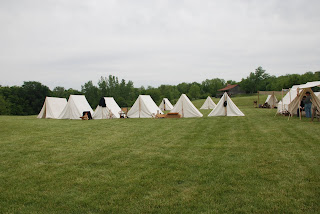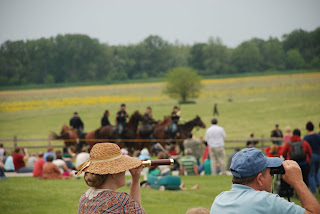eBlackChampaign-Urbana Announcement for American History Teachers Collaborative
The eBlackChampaign-Urbana (eBlackCU) project is a University of Illinois-led project that seeks to 1) Centralize information on local African-American history and culture and create new knowledge through this centralization; 2) Involve past and present community residents in the production of knowledge by soliciting their contributions, both in the form of personal memories and in the form of digitized personal archives; 3) Create a community of scholars, activists, educators, students and citizens interested in learning more about various aspects of local African-American history and culture and using that knowledge in the present; and 4) Develop the best-practices to scale this project up to the state-level in the implementation of
eBlackIllinois: A Comprehensive Database on the Black Experience in Illinois.
The project's web address is http://www.eBlackCU.net.
The project started in November 2009 and will continue at least through the end of December 2010, with our hopes being to find a way to continue the project, or aspects of the project.
Our products have thus far included:
a) A bibliography of information sources on local African-American issues, http://eblackcu.net/portal/items/show/2
b) A digital library of newly digitized information sources and websites on local African-American issues, http://eblackcu.net/portal/
c) Two digital exhibits that bring together these information sources in a narrative frame-work on Salem Baptist Church and the North First Street Business Community, http://eblackcu.net/portal/exhibits
We intend to add more items to the bibliography, more digitized texts to the digital library and more digital exhibits throughout the year.
Our goal in all of this is to make the project as collaborative as possible. ANYONE can submit information of ANY type to the website using our contribute form: http://eblackcu.net/portal/contribution.
All submissions are vetted by the project team before appearing online and e-mails are required in case follow-up contact with submitters are required.
In addition to the website we will have three other main outputs from this project: 1) A print/digital publication of University of Illinois research relating to local African-American issues written at a level accessible to a high school audience which will be distributed to area high school and public libraries, as well as to community groups, and will also be available online; 2) A campus-community symposium slated for November 5-6 (location TBA) that will focus on the documentation of African-American history in Champaign-Urbana, research on local African-American issues, digital technology and African-American culture, and broadband and the future of the African-American Community in Champaign-Urbana. All are welcome to attend and more information will be distributed as it is announced; and 3) We are hiring six high school and Parkland age African-American interns to learn how the eBlackCU website works, become proficient in digital libraries/digital exhibits, and serve as spiders to get the project spread throughout the community. Our second goal in hiring interns is to help them and their peers get into the University of Illinois.
All are welcome to contribute to and become a part of this project.
For volunteer opportunities and to stay up-to-date with news on the project as it happens visit our blog http://eblackcu.net/blog/ and Facebook page: http://tinyurl.com/2clbrta.
The project director for eBlackCU is Noah Lenstra (nlenstr2@illinois.edu), a Certificate of Advanced Study student in the Graduate School of Library and Information Science
(http://www.lis.illinois.edu/) at UIUC and the supervising investigator is Abdul Alkalimat (mcworter@illinois.edu), Professor of African-American Studies (http://www.afro.illinois.edu/) and Library and Information Science. This project is funded by the Office of the Vice Chancellor for Public Engagement (http://engagement.illinois.edu/) and the Community Informatics Initiative (http://cii.illinois.edu/). Public partners include the Champaign County Historical Archives (http://www.urbanafreelibrary.org/archives/), Urbana Free Library; and the Early American Museum (http://www.earlyamericanmuseum.org/): The Heritage Center of Champaign County, Champaign County Forest Preserve.
Monday, May 24, 2010
Tuesday, May 18, 2010
Civil War Mini-Summer Institute
On May 14th and 15th, fifty teachers joined us in the Urbana Middle School and Fishers, Indiana for a day and a half workshop about the Civil War. Professor Bruce Levine, J.G. Randall professor of History at the University of Illinois, joined us on Friday night for a lecture on Abraham Lincoln and his role in the Civil War. Professor Levine argued that the Civil War was an unprecedentedly transformative event in American history and guided us through an exploration on Lincoln's writings and behaviors of that period. Holding up the binary of "actor" or "acted upon," Professor Levine found that Lincoln fell somewhere in the middle, arguing that while Lincoln frequently reacted to events rather than reaching out to shape them, his reactions were guided by consistent, firmly held beliefs and principles.
 After Professor Levine's keynote, the group had an hour of question and answer which led to some really great discussions about Lincoln and the Civil War generally.
After Professor Levine's keynote, the group had an hour of question and answer which led to some really great discussions about Lincoln and the Civil War generally.
 Saturday morning, we reconvened for the bus trip to Conner Prairie. Conner Prairie is a living history museum in Fishers, Indiana, that preserves the William Conner home, and recreates part of life in Indiana in the 19th century. On Saturday, May 15th, they were celebrating "Civil War Days," an exploration of life during the Civil War, complete with a reenacted skirmish between Union and Confederate troops.
Saturday morning, we reconvened for the bus trip to Conner Prairie. Conner Prairie is a living history museum in Fishers, Indiana, that preserves the William Conner home, and recreates part of life in Indiana in the 19th century. On Saturday, May 15th, they were celebrating "Civil War Days," an exploration of life during the Civil War, complete with a reenacted skirmish between Union and Confederate troops.
Conner Prairie put together a great program of events, including lectures from the Union 28th Colored Unit, a tomahawk throwing competition in the Lenape village and reenactments of Civil War dress, cooking, medicine and photography. Overall, it was a very fun day and a new way to learn about life in 19th century America.
 After Professor Levine's keynote, the group had an hour of question and answer which led to some really great discussions about Lincoln and the Civil War generally.
After Professor Levine's keynote, the group had an hour of question and answer which led to some really great discussions about Lincoln and the Civil War generally. Saturday morning, we reconvened for the bus trip to Conner Prairie. Conner Prairie is a living history museum in Fishers, Indiana, that preserves the William Conner home, and recreates part of life in Indiana in the 19th century. On Saturday, May 15th, they were celebrating "Civil War Days," an exploration of life during the Civil War, complete with a reenacted skirmish between Union and Confederate troops.
Saturday morning, we reconvened for the bus trip to Conner Prairie. Conner Prairie is a living history museum in Fishers, Indiana, that preserves the William Conner home, and recreates part of life in Indiana in the 19th century. On Saturday, May 15th, they were celebrating "Civil War Days," an exploration of life during the Civil War, complete with a reenacted skirmish between Union and Confederate troops.Conner Prairie put together a great program of events, including lectures from the Union 28th Colored Unit, a tomahawk throwing competition in the Lenape village and reenactments of Civil War dress, cooking, medicine and photography. Overall, it was a very fun day and a new way to learn about life in 19th century America.
Friday, May 7, 2010
Resources Available from Some of Our Partners
Anyone who has done a Summer Fellowship is aware that our partner museums and archives have an amazing collection of primary sources available to work with, but outside the context of a fellowship, it is easy to forget to utilize them. Two of our partners are making it easier for you to access these sources to use in your classrooms.
The Champaign County Historical Archives has a new digital collection of photographs from the archives. Historic Champaign County: Neighborhoods and Homes includes photographs of homes, public buildings and neighborhoods that represent the architectural history of the area. You can access this collection at urbanafreelibrary.org/archives/collections/.
The Illinois State Archives has pulled together six teaching packets to encourage the use of primary sources in the classroom. These packets, which contain a teacher's manual and a set of document reproductions, are free for Illinois teachers and educational institutions. The packets available are:
The Champaign County Historical Archives has a new digital collection of photographs from the archives. Historic Champaign County: Neighborhoods and Homes includes photographs of homes, public buildings and neighborhoods that represent the architectural history of the area. You can access this collection at urbanafreelibrary.org/archives/collections/.
The Illinois State Archives has pulled together six teaching packets to encourage the use of primary sources in the classroom. These packets, which contain a teacher's manual and a set of document reproductions, are free for Illinois teachers and educational institutions. The packets available are:
- "Abraham Lincoln in Illinois"
- "Hard Times in Illinois, 1930-1940"
- "The Illinois and Michigan Canal, 1827-1911"
- "Illinois at War, 1941-1945"
- "Early Chicago 1833-1871"
- "From the Ashes, 1872-1900" (Chicago's development after the Great Fire to the turn of the century.)
Subscribe to:
Comments (Atom)









